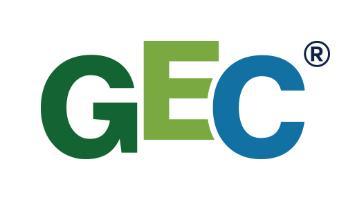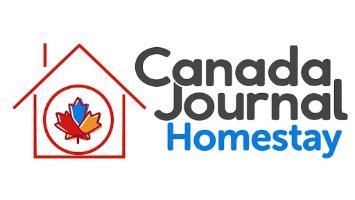Live in Vancouver
Renting in Vancouver
GEC Student Housing
SpacesShared
Homestay
Cost of Living
Vancouver is the third-largest city in Canada and the largest city in the province of British Columbia. Its beautiful location close to the ocean and mountains attracts residents and visitors from all over the world.
Here are some resources to help with transitioning to life in British Columbia and Vancouver:
- The B.C. Newcomers’ Guide: The guide contains information and videos in a variety of languages. Topics covered include The First Few Days, Transportation, Finding a Place to Live, Money and Banking, Health Care and more.
- Moving to Vancouver: The city of Vancouver puts together a guide with downloadable resources and Areas of the City sections. Use the navigation map on the Areas page to link to community-specific information including services, news & events.
Renting in Vancouver
While VCC does not offer on-campus housing or a dormitory, there are many housing options such as GEC Student Housing, SpacesShared, Homestays, and rentals. If you decide to rent a place, here are some reminders to get you started.
- Begin your search early and well before your move to secure the best options and avoid last-minute stress.
- Research neighbourhoods based on proximity to VCC, safety, public transport, and amenities. In addition to Vancouver, you may also find options close to Skytrain Stations in other Metro Vancouver cities like Burnaby, Richmond, New Westminster or Surrey.
- Check out social media groups or student forums specific to international students in Vancouver for housing leads and advice.
- Check out resources from Government websites, such as Renting an apartment or house from the Government of Canada website
Tenant Rights
It is important that you know your rights as a tenant in British Columbia.
- A tenancy agreement is a contract between a landlord and a tenant and outlines important details such as rental duration, rent amount, and landlord/tenant responsibilities. Both landlords and tenants must sign and date the agreement. Ensure you review the terms and conditions carefully before signing the agreement and keep a signed copy for your records.
- One security deposit and one pet damage deposit (if applicable) can be requested for each unit by the landlord. Neither deposit can be more than half of one month's rent. Always document the condition of the property when you move in.
- Landlords must provide written notice at least three months in advance for rent increases and can only raise rent once per year within government-set limits.
- It is the landlord's responsibility to maintain the property in a safe and habitable condition.
If you require additional support, contact the Residential Tenancy Branch (RTB).
Beware of Scams
Here are some common scams and tips and resources are how to protect yourself, and what to do if you are scammed.
- Common scams
- Fake Listings: attractive listings with low prices
- Upfront Payment Requests: requests for deposits or rent before viewing the property in person
- “Unavailable Landlord” Stories: claims of being out of the country and needing payment in advance
- Identity Theft: requests for personal information, such as your SIN or bank details, before signing a contract
- Protect Yourself
- Always view the property in person or through a verified virtual tour.
- Never transfer money without a signed rental agreement after verifying the landlord's identity
- Research the landlord’s contact information and the property’s address.
- Avoid overly good-to-be-true deals as they often are scams.
- What to Do If You’re Scammed
Rental Options
While it is exciting to live in Vancouver, which is constantly ranked as one of the most livable cities in the world, finding the right rental accommodation may not be easy if you are new to the city. While there are numerous options available for students such as furnished and unfurnished rentals in houses, basement suites, condominiums and apartments, it’s important to be aware of fraud and know your rights as a tenant - check Renting in Vancouver for additional resources.
VCC does not endorse these sites, and it is the student's responsibility to carefully choose a rental unit that best meets their needs and preferences.
GEC Student Housing
GEC (Global Education City, or GEC Living) is Vancouver's largest off-campus student accommodation provider, hosting over 5,000 students annually. GEC provides a comfortable and safe living environment and has welcomed students from more than 71 countries, making it a highly sought-after option by international students. Here are some reasons why choosing GEC may be a great option for your stay in Vancouver:
- Move-in ready: GEC's apartments are fully furnished.
- Comprehensive services: GEC may offer many services beyond accommodation, including amenities, security, and student support.
- Convenience: GEC residences are all conveniently located across Vancouver, within walking distance to shopping malls to meet your daily needs.
- GEC student community: GEC may foster a vibrant student community within its accommodations, providing opportunities for social interaction, networking, and collaboration among students from diverse backgrounds.
- Services and features included in the rent:
- Bed with beddings
- Study desk and chair
- All-inclusive utilities
- Wi-Fi
- Maintenance
- On-site staff
- 24/7 on-call emergency assistance
- 24/7 centralized security
- ...and more
Inquire Now

Homestay
We encourage international students to experience life with a Canadian family until they become accustomed to their new surroundings. Staying with a homestay provides students with the opportunity to practice English outside the classroom and learn about the Canadian way of life.
Canada Journal Homestay, for example, places international students with homestay families that offer the following:
-
Private furnished bedroom with a window
-
Shared common areas of the house, such as the bathroom, kitchen, laundry room, TV room, etc.
- Three meals per day (additional fees may apply for dietary restrictions)
VCC students receive a discount on the Homestay Placement Fee. If you're interested in staying with a homestay family, please contact Canada Journal Homestay directly.

SpacesShared
Finding a comfortable and affordable place to live while studying at VCC has just become easier. Through a partnership with SpacesShared, VCC students now have access to a network of welcoming hosts who offer safe, budget-friendly housing options.
Whether you’re new to the city or simply looking for a supportive home environment, this initiative helps you connect with hosts who have been thoughtfully screened. Signing up is free and simple - get started soon so you can focus on your studies and student life.
I am a student and I'm looking for a room.
I have a home and would like to host a student.

Cost of Living
Vancouver offers an exceptional educational opportunity for international students, but to fully benefit from your experience, you must plan a realistic budget early on. The cost of living can vary depending on your location and lifestyle, and carefully managing these expenses is essential since studying abroad is a significant and meaningful investment.
The proof of financial support required by IRCC (Immigration, Refugees and Citizenship Canada) for a study permit application is $22,895 for one student. International students need to budget accordingly when planning to study in Canada and ensure they have sufficient funds to cover the cost of living, in addition to tuition and school fees.
As of 2025, housing can range between $1,000 and $3,000 depending on the type of accommodations, while meals can range between $500 and $1,000 depending on the choices of food, dietary preferences and restrictions, and method of cooking or dining. Utilities can range between $50 and $150 depending on how much is included in the rent, and transportation can range between $50 and $200 depending on the modes of transportation. Generally speaking, it is safer to budget a minimum of $2,000 to $2,500 per month. The cost may be higher if you are coming with family members.
Here are some online resources that may be helpful budget planning tools:
- Budget Planner from the Government of Canada
- Numbeo cost of living estimate
- Livingcost.org



